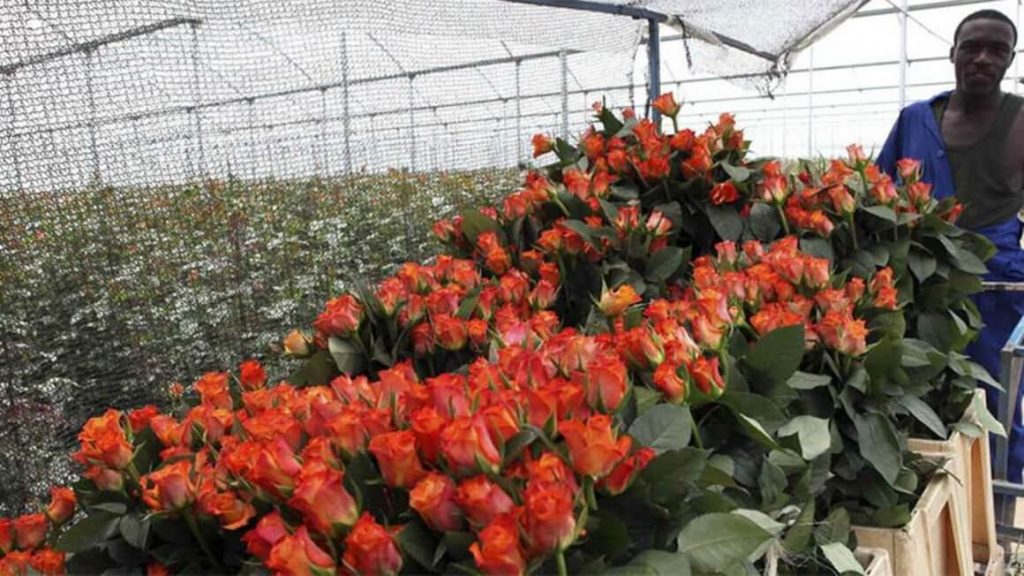
The flower industry is a global business that involves the production, distribution, and retail of flowers and ornamental plants.
With increasing consumer awareness about the environmental and social impact of products, there is a growing demand for traceability in supply chains, including the floral value chain. Traceability plays a crucial role in ensuring sustainable and ethically sourced flowers, meeting consumer expectations, and supporting responsible business practices.
Benefits of Traceability in the Floral Value Chain
Consumer Confidence and Demand: Traceability instills confidence in consumers by providing transparent information about the origin, quality, and sustainability of flowers. Consumers increasingly seek products that align with their values, such as environmentally friendly and ethically sourced flowers. Traceability empowers consumers to make informed purchasing decisions and supports their preferences for responsible and sustainable products.
Supply Chain Transparency: Traceability enhances transparency throughout the floral value chain. It allows stakeholders to track and document key information at each stage, including production practices, handling, transportation, and storage conditions. This transparency helps identify and address potential issues related to quality, safety, or compliance with environmental and social standards.
Quality Assurance: Traceability systems enable better quality control by tracking the handling and storage conditions of flowers. By monitoring factors such as temperature, humidity, and transportation routes, stakeholders can ensure that flowers are maintained in optimal conditions, preserving their freshness, longevity, and quality.
Risk Management: Traceability provides a mechanism to trace back any quality or safety issues that may arise in the floral value chain. In the event of product recalls or contamination incidents, traceability allows for quick and targeted responses, minimizing the impact on consumers and mitigating reputational risks for businesses.
Sustainability and Social Responsibility: Traceability supports sustainability initiatives in the floral industry. It enables the identification and promotion of flowers produced using environmentally friendly practices, such as reduced water and chemical usage or adherence to sustainable certifications. Traceability also helps ensure compliance with labor and social standards, including fair wages, safe working conditions, and respect for workers’ rights.
Challenges and Implementation of Traceability
While the benefits of traceability in the floral value chain are significant, its implementation faces various challenges. These challenges include:
Complexity of the Supply Chain: The floral value chain often involves multiple stakeholders, including farmers, wholesalers, distributors, retailers, and logistics providers. Coordinating traceability efforts among these diverse actors can be challenging due to differences in infrastructure, technology adoption, and information sharing practices.
Data Collection and Management: Collecting and managing accurate and reliable data throughout the value chain is crucial for effective traceability. However, data collection can be resource-intensive and time-consuming, particularly for small-scale farmers or businesses with limited technological capabilities.

Standardized data formats and protocols are necessary to ensure compatibility and consistency across the supply chain.
Limited Technology Adoption: Traceability systems rely on technology, such as barcode scanning, radio frequency identification (RFID), or blockchain. However, the adoption of these technologies may be limited due to factors such as cost, infrastructure requirements, and technical expertise. Overcoming these barriers and promoting technology uptake across the floral value chain is essential for effective traceability implementation.
Collaboration and Cooperation: Implementing traceability requires collaboration and cooperation among stakeholders. This can be challenging due to competition, information asymmetry, or reluctance to share proprietary information. Building trust and establishing partnerships among stakeholders is crucial to foster effective traceability practices.
Despite these challenges, various initiatives and technologies are driving the implementation of traceability in the floral value chain:
Certification and Standards: Industry-wide certifications and standards play a crucial role in establishing traceability practices. For example, sustainability certifications like Florverde Sustainable Flowers or Fairtrade provide guidelines and requirements for responsible production, ensuring traceability and compliance with environmental and social criteria.
Technology Adoption: Advances in technology have opened new possibilities for traceability in the floral industry. Blockchain technology, for instance, provides an immutable and decentralized ledger that can securely record and share supply chain information. Blockchain enhances transparency, prevents data tampering, and enables real-time access to traceability information.
Digital Platforms and Data Management Systems: Digital platforms and data management systems are emerging to facilitate traceability in the floral value chain. These platforms provide centralized databases or cloud-based solutions for storing and sharing supply chain information. They enable stakeholders to access, verify, and update data, promoting transparency and collaboration.

Data Collection Tools: Innovations in data collection tools, such as mobile applications or Internet of Things (IoT) devices, simplify the gathering of information in the floral value chain.
Mobile apps can be used to record data at the farm level, including production practices or environmental parameters. IoT devices, such as sensors or RFID tags, enable real-time data collection on transportation conditions, ensuring transparency and monitoring quality.
Traceability provides consumers with the information they need to make informed choices, supports responsible business practices, and helps identify and address issues related to quality or compliance. While challenges exist, embracing traceability in the floral value chain can enhance consumer confidence, promote sustainable production practices, and contribute to the overall integrity and transparency of the industry. Continued investment in traceability systems, technology adoption, and industry collaboration will be essential to meet evolving consumer expectations and ensure the long-term sustainability of the floral sector.
